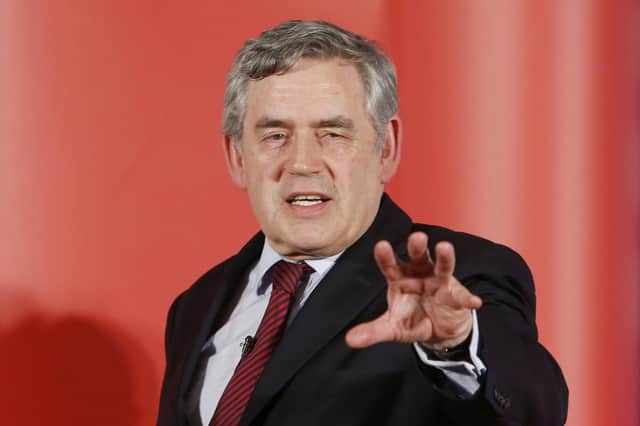Book review: Seven Ways To Change The World, by Gordon Brown


Gordon Brown celebrated his 70th birthday earlier this year; but to judge by the breadth, detail, and dynamism of his latest book, his energy remains undiminished, as does his passion for using the powers of government to create a more just and morally sustainable world. A decade on from the end of his ill-starred period as UK Prime Minister, he remains defined in the public mind both by the perceived failure of that premiership, and – in Scotland – by his subsequent diehard defence of the Union, in increasingly Tory and Brexit-ridden times.
The truth about Brown, though, is that he is one of a small but growing band of 21st century politicians whose focus has long since moved beyond the powers and possibilities of national government, towards the range of global issues highlighted in this book. In his preface, he refers to the world’s “ungoverned spaces”; not only those failed states where national governments have broken down, but those areas of global and transnational activity where no effective governance has ever yet existed. These areas, he says, include “the entire global environment – polluted oceans, desiccated forests and fast-expanding deserts. They span the global financial system, as illicit flows of money facilitate the looting of public coffers. And they include the world’s thermonuclear safety regime, ever more vulnerable to accidents and manipulation.”
Advertisement
Hide AdAnd so begins Brown’s forensic examination of seven areas where global reform and action are essential, if the our world is to survive the coming century. The succeeding chapters cover the future of global health and pandemic prevention, the need for a comprehensive plan for economic recovery and restored growth, the potential for a global Green New Deal, the urgent need for a revolution to deliver education to every child, the reform and upgrading of global humanitarian responses, the abolition of tax havens and the massive looting of global wealth by those already rich, and the elimination of nuclear weapons.


Sometimes, the sheer detail and technical complexity of Brown’s proposals defeats even the interested reader. Two decades in top-level politics, followed by ten years as a UN special envoy on global education, have left him with a knowledge of existing international institutions, their weaknesses and potential, that is probably shared by only a few hundred experts around the world; and the technical density of his chapter on economic reconstruction, for example, raises questions about who the likely audience for this book might be.
Yet Brown’s prose is never less than lucid and energetic, and some of his chapters – notably on the imperative of education, and on the humanitarian challenge of the coming decades – are as accessible as they are interesting and challenging. Towards the end of the book – where Brown engages, in moving and thoughtful style, with his own failures of narrative and persuasion as Prime Minister, and with the idea that government can no longer deliver change without the support of powerful social movements – it occurred to me that there is one other active Scottish politician who would doubtless share almost every detail of his vision for a more hopeful global future, and that her name is Nicola Sturgeon; the First Minister’s recent book of published speeches, particularly on international issues, reflects an almost identical set of concerns and hopes, with an added feminist perspective.
The disagreement over Scotland’s constitutional future that currently divides Scotland’s social democratic tradition, and makes it impossible for Brown and Sturgeon to work together in the current age of global crisis, is of course a minor tragedy, compared with some of the potential disasters now faced by humankind. Yet these huge areas of shared concern raise the question of whether the world is now spawning a generation of progressive politicians who need and yearn for an effective global stage on which to work for essential change; but who may have to rebuild that effective global system almost from scratch, to meet the challenges of our time.
Seven Ways To Change The World, by Gordon Brown, Simon & Schuster, £25
A message from the Editor
Thank you for reading this article. We're more reliant on your support than ever as the shift in consumer habits brought about by coronavirus impacts our advertisers.
If you haven't already, please consider supporting our trusted, fact-checked journalism by taking out a digital subscription at https://www.scotsman.com/subscriptions